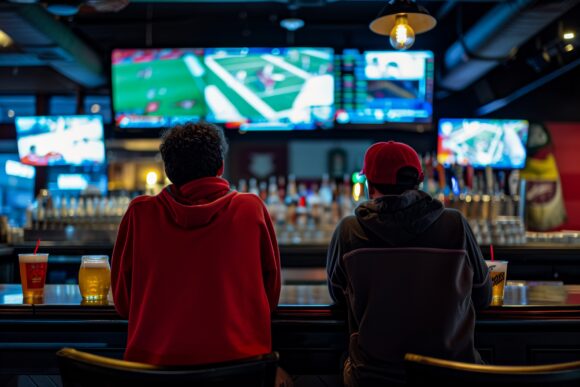A strategy aimed at preventing Minnesota restaurants and bars from serving alcohol to patrons who are already intoxicated does not appear to be effective, according to a study recently published in Alcohol: Clinical and Experimental Research.
Overservice, that is, serving alcohol to people who are observably intoxicated, is illegal in 48 states and contributes to alcohol-related problems like drunk driving and assaults.
The ‘Place of Last Drink’ (POLD) program requires first responders to alcohol-related crashes and other incidents to ask where the individuals involved had been drinking. This information is monitored, and law enforcement can then communicate with establishments that may be contributing to alcohol-related problems in a community and potentially impose training or penalties.
Researchers sent actors into over 400 restaurants and bars in Minnesota, where overservice is illegal. Approximately half (204) of the restaurants were in jurisdictions using a POLD strategy, and the other half (192) were not. The actors ordered a drink, exhibiting obvious signs of alcohol intoxication. The overtly intoxicated actors were served alcohol in 99 percent of the establishments in jurisdictions using a POLD strategy and in 97 percent of establishments that were in jurisdictions not using POLD.
Researchers found that most of the agencies responsible for the policies did not regularly communicate with alcohol establishments, and most of those that did follow up did not use punitive measures as a deterrent.
However, the study was conducted during the COVID pandemic and two years after the death of George Floyd in Minnesota, which may have shifted attention and resources away from POLD efforts. During the pandemic, restaurants and bars faced staffing shortages and closures, and alcohol restrictions had been relaxed. The likelihood of overservice of alcohol was much higher than it was in the decades before the pandemic across all communities.
The study highlights the need for continued attention to the problem of overservice. Researchers recommend examination of whether a multi-component intervention, where Place of Last Drink strategies are supported by, for example, increased enforcement, a responsible beverage service training program, or a media campaign, might be effective.
Was this article valuable?
Here are more articles you may enjoy.



 How One Fla. Insurance Agent Allegedly Used Another’s License to Swipe Commissions
How One Fla. Insurance Agent Allegedly Used Another’s License to Swipe Commissions  Nine-Month 2025 Results Show P/C Underwriting Gain Skyrocketed
Nine-Month 2025 Results Show P/C Underwriting Gain Skyrocketed  Allstate CEO Wilson Takes on Affordability Issue During Earnings Call
Allstate CEO Wilson Takes on Affordability Issue During Earnings Call  AIG Underwriting Income Up 48% in Q4 on North America Commercial
AIG Underwriting Income Up 48% in Q4 on North America Commercial 

